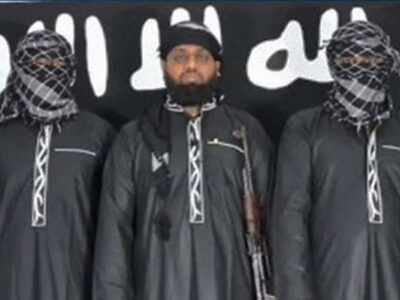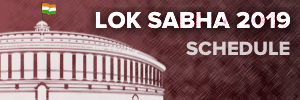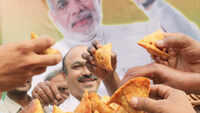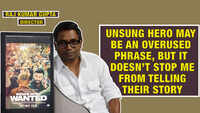
COLOMBO: Sri Lankan President Maithripala Sirisena said on Friday that National Thowheed Jamaat leader Zahran Hashim, believed to have masterminded the Sunday blasts, died in the attack on a popular tourist hotel, according to media reports.
Zahran, whose incendiary speeches and photographs with alleged suicide bombers were widely circulated on social media, had been on the Interpol watch list. There was no clarity, however, on the part played by Hashim in the Shangri-La bombing, one of six bomb attacks on Easter Sunday that killed 253 people in Sri Lanka, the reports added.
He said his government considered banning the NTJ on April 22, a day after the serial blasts. “But we don’t have the laws to be able to do that right now. We are now looking into the acts passed by the Australian Parliament to help us draft the required laws. We will get this done soon,” he said.
Exposing the deep rifts within the government and the simmering tensions between him and Prime Minister Ranil Wickramasinghe, President Sirisena said, “Highly descriptive information was given by a friendly nation to a head of intelligence on April 4. It included targets and methods of the attack. Until April 12, this information was passed around.” The defence secretary didn’t take it seriously, he said. “He did not act on it with seriousness. The IGP then received it and sent it to five DIGs. One of them, DIG Dasanayake, acted and sent it to VIP security. But the IGP and other DIGs didn’t do their job.”
Stating that neither IGP Pujith Jayasundara nor defence secretary Hemasiri Fernando informed him of the intelligence report, Sirisena said, “I am not saying this to absolve myself from any responsibility. But this is the fact.” He added, “When I asked the IGP and defence secretary as to why they didn’t inform me or anyone above them on intel reports, they both remained silent.” But, he said, “I am not prepared to excuse myself from the responsibility for this lapse. The government must accept responsibility.”
Prime Minister Ranil Wickramasinghe, meanwhile, tweeted on Friday morning to say: “We take collective responsibility and apologise to our fellow citizens for our failure to protect victims of these tragic events. We pledge to rebuild our churches, revive our economy, and take all measures to prevent terrorism, with the support of the international community.”
On rumours that foreign military personnel have been deployed across the island nation, President Sirisena said, “No foreign army will step into Sri Lanka. But we will get assistance from other nations to help us fight IS.”
He said major search operations were being undertaken and “every household” in the country would be checked. Lists of permanent residents of every house will be established to ensure no unknown persons can live anywhere, he said. “During the fight against LTTE terrorism too similar methods were adopted.”
Finance minister Mangala Samaraweera said during an interaction with journalists that Mohammed Yusuf Ibrahim, the father of the two suicide bombers, now in the custody of the Sri Lankan police, was a billionaire who was seen with ministers. He said several international agencies, including the FBI, Scotland Yard and Indian agencies, were helping with the investigations.
He said action would be taken against all officials who neglected their duties, and a total reorganisation of the security establishment would be undertaken soon. On Thursday, the first head rolled with Fernando tendering his resignation.
Blaming human rights organisations for the “weakening of the intelligence and investigating agencies”, Sirisena said, “One of the main reasons for the rift between the government and I over the past two years was because I stood against the weakening of the armed forces. Top intelligence officers were harassed and I had to even send a few on overseas appointments to help them.”
(With inputs from agencies)
Zahran, whose incendiary speeches and photographs with alleged suicide bombers were widely circulated on social media, had been on the Interpol watch list. There was no clarity, however, on the part played by Hashim in the Shangri-La bombing, one of six bomb attacks on Easter Sunday that killed 253 people in Sri Lanka, the reports added.
Meanwhile, in a statement released by the president’s office, Sirisena, quoting intelligence agencies, said at least 130 to 140 Muslim youths with links with the organisation Islamic State (IS) were hiding in Sri Lanka and police were searching for them. More than 70 people have been arrested, he said. “I will stamp out IS from Sri Lanka. Our police and security forces are capable of achieving this,” Sirisena said, adding, “The US couldn’t prevent 9/11. This sort of terrorism isn’t unique to Sri Lanka. Even the most powerful nations have suffered.”
He said his government considered banning the NTJ on April 22, a day after the serial blasts. “But we don’t have the laws to be able to do that right now. We are now looking into the acts passed by the Australian Parliament to help us draft the required laws. We will get this done soon,” he said.
Exposing the deep rifts within the government and the simmering tensions between him and Prime Minister Ranil Wickramasinghe, President Sirisena said, “Highly descriptive information was given by a friendly nation to a head of intelligence on April 4. It included targets and methods of the attack. Until April 12, this information was passed around.” The defence secretary didn’t take it seriously, he said. “He did not act on it with seriousness. The IGP then received it and sent it to five DIGs. One of them, DIG Dasanayake, acted and sent it to VIP security. But the IGP and other DIGs didn’t do their job.”
Stating that neither IGP Pujith Jayasundara nor defence secretary Hemasiri Fernando informed him of the intelligence report, Sirisena said, “I am not saying this to absolve myself from any responsibility. But this is the fact.” He added, “When I asked the IGP and defence secretary as to why they didn’t inform me or anyone above them on intel reports, they both remained silent.” But, he said, “I am not prepared to excuse myself from the responsibility for this lapse. The government must accept responsibility.”
Prime Minister Ranil Wickramasinghe, meanwhile, tweeted on Friday morning to say: “We take collective responsibility and apologise to our fellow citizens for our failure to protect victims of these tragic events. We pledge to rebuild our churches, revive our economy, and take all measures to prevent terrorism, with the support of the international community.”
On rumours that foreign military personnel have been deployed across the island nation, President Sirisena said, “No foreign army will step into Sri Lanka. But we will get assistance from other nations to help us fight IS.”
He said major search operations were being undertaken and “every household” in the country would be checked. Lists of permanent residents of every house will be established to ensure no unknown persons can live anywhere, he said. “During the fight against LTTE terrorism too similar methods were adopted.”
Finance minister Mangala Samaraweera said during an interaction with journalists that Mohammed Yusuf Ibrahim, the father of the two suicide bombers, now in the custody of the Sri Lankan police, was a billionaire who was seen with ministers. He said several international agencies, including the FBI, Scotland Yard and Indian agencies, were helping with the investigations.
He said action would be taken against all officials who neglected their duties, and a total reorganisation of the security establishment would be undertaken soon. On Thursday, the first head rolled with Fernando tendering his resignation.
Blaming human rights organisations for the “weakening of the intelligence and investigating agencies”, Sirisena said, “One of the main reasons for the rift between the government and I over the past two years was because I stood against the weakening of the armed forces. Top intelligence officers were harassed and I had to even send a few on overseas appointments to help them.”
(With inputs from agencies)
Download The Times of India News App for Latest World News.
#ElectionsWithTimes
more from times of india news
Elections 2019

Trending Topics
LATEST VIDEOS
Trending Videos
 Watch: Brawl over ‘samosas’ during UP Dy CM Maurya’s public rally
Watch: Brawl over ‘samosas’ during UP Dy CM Maurya’s public rally  The blind and impoverished John Milton sold the copyright of Paradise Lost for £10 in 1667
The blind and impoverished John Milton sold the copyright of Paradise Lost for £10 in 1667  Raj Kumar Gupta: Unsung hero might be an overused phrase, but it should not stop me from telling their story
Raj Kumar Gupta: Unsung hero might be an overused phrase, but it should not stop me from telling their story  Fan compares Ranveer Singh's picture with Pokemon!
Fan compares Ranveer Singh's picture with Pokemon!
More from TOI
Navbharat Times
Featured Today in Travel
Get the app






